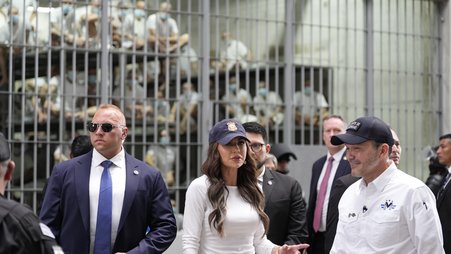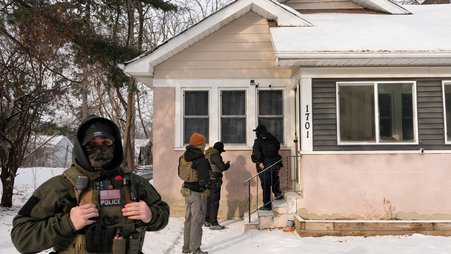
Attorney General Jeff Sessions resigned yesterday, apparently at the request of President Donald Trump. During his two years in office, Sessions has used the power of the Justice Department to lead a crackdown on civil liberties and press freedom. As the ACLU remarked, Sessions “was the worst attorney general in modern American history."
Here’s a look back at some of the damage Sessions has done to journalists and whistleblowers:
Tripling number of investigations
The Justice Department has tripled the number of leak investigations since the Obama administration, which had already brought a record number of prosecutions. Sessions said last year that there were 27 open leak investigations, compared to a total of nine in the previous history of the United States. There are now almost certainly more.
Prosecutions of sources and whistleblowers
In less than two years, Sessions' Justice Department has brought charges against at least five alleged sources of journalists and investigated potentially dozens more. The Trump administration is on pace to shatter the Obama administration’s record for prosecuting sources.
Two have already been sentenced to years in prison—Reality Winner, convicted of leaking information related to the security of election infrastructure, and Terry Albury, for sharing information about the FBI’s racially-charged investigative tactics and monitoring of journalists. Whistleblowers like Winner and Albury should be applauded for their acts of courage—instead, they’ll spend years in prison.
Seizure of a reporter’s phone and email records
The Sessions Justice Department escalated its crackdown on leaks when it seized an entire year’s worth of the phone and email records of a New York Times reporter. She was not notified that her records had been seized until after the fact, so she had no opportunity to challenge it in court. This is the first publicly known instance of the Trump administration directly surveilling a reporter to attempt to root out their source, and given the number of leak investigations by Sessions, it’s quite possible there are others.
Demonizing encryption
In the digital age, the confidentiality of communications between journalists and sources requires strong encryption. Sessions said that breaking encryption is “critical”, noting how the FBI is unable to access thousands of devices tied to ongoing investigations due to encryption. “Ultimately, we may need Congress to take action on this issue," he said.
Potential prosecution of WikiLeaks and other journalists
Sessions has indicated that the United States wants to bring criminal charges against WikiLeaks for publishing secret information, which would have devastating implications for the countless journalists and news outlets that publish and report on classified documents. When asked to commit to not jailing reporters for doing their jobs if the Justice Department successfully gets its desired precedent against WikiLeaks, Sessions refused, saying that he could not “make a blanket commitment to that effect.”
Making subpoenaing journalists easier
Without evidence, Sessions suggested news organizations had endangered people’s lives by publishing stories based on leaked information, and considered making it easier for reporters to be subpoenaed. He said last August that the Justice Department was “reviewing our policies affecting media subpoenas.”
Jeff Sessions caused serious damage to freedoms of press and expression in the United States, and he has played a central role in the Trump administration’s crackdown on whistleblowers. The American people deserve an Attorney General who will defend press freedom and civil liberties—in other words, the opposite of Jeff Sessions.




